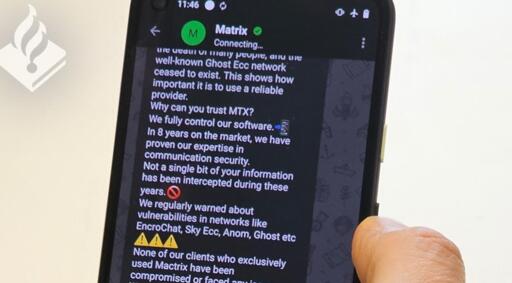I’m surprised so many criminals are picking these niche services that haven’t had their security verified by trustworthy third parties. That’s just asking for trouble.
The allure of the potential for “security through obscurity” is great if you don’t know better.
As with all criminals, it’s only the dumb ones that get caught.
I wonder if this matrix app was just a honeypot that was named to trick people into thinking they were using the “real” matrix.
What is the Matrix?
La matrice est universelle, elle est omniprésente, elle est avec nous ici en ce moment même, elle est le monde qu’on superpose à ton regard pour t’empêcher de voir la vérité.
Quelle vérité ? Le fait que tu es un esclave Néo. Le monde est une prison, sans espoir, ni saveur, ni odeur, une prison pour ton esprit.
The investigation did not spotlight the similarly-named Matrix open source communication protocol.
Feel like there are going to be a lot of confused Lemmy users who won’t read more than the title.
My undergraduate professor once worked for one of the largest banks in Germany, and she told me clearly that all encryption algorithms exported by the US have a way of being broken. A backdoor in the algorithm? Perhaps
Not really. Certainly some “encryption” algorithms or really implementations have backdoors, but RSA for example doesn’t. Encryption is only worthwhile if it’s mathematically sound, and you can’t backdoor mathematics without some random undergrad working on their maths degree figuring out for fun.
Why are these apps getting hacked? Wouldn’t just RSA 2048 be enough?
Probably an implementation issue. Make a small error there, like storing parts of a key in memory or something like that and you’ve compromised security.
Encryption is easy, key exchange is not
Encryption is really really hard, and avoiding some form of sidechannel attack is much much harder.
Sure key exchange also isn’t trivial, but I would say that key exchange is significantly easier. Care to elaborate?





